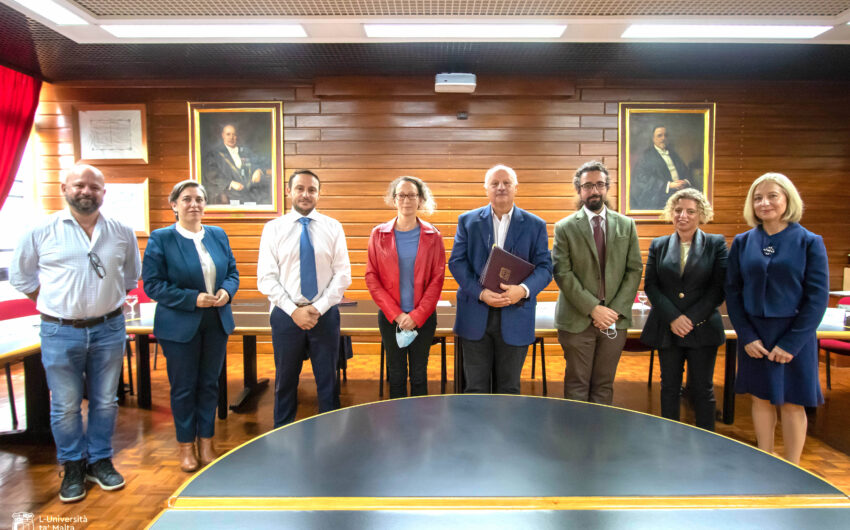
The CareMalta Group is one of seven key partners contributing to local research on the rise of emerging infectious diseases (EIDs) and antimicrobial resistance (AMR) over the last two decades, including the current COVID-19 pandemic, which has necessitated improved prevention and response strategies for such risks.
The other partners are the Housing Authority, Mental Health Services, Fondazzjoni Sebħ, Blue Door, Allied Rainbow Community and the Richmond Foundation.
The Sonar-Global project, led by a consortium of social scientists, has received funding from the EU’s Horizon 2020 research and innovation programme. The research conducted in Malta is led by Prof. Jean-Paul Baldacchino, head of the Department of Anthropological Sciences at the University.
The aim of the project is to develop a global think tank of scholars working on applying insights, from social science to health science, with a focus on infectious diseases and antimicrobial resistance. Part of this study involves the implementation of a vulnerability assessment tool across a variety of sites within Europe and beyond, which will help gather in-depth data on resilience, as well as new and emerging vulnerabilities.
Local research involved around 120 interviews with individuals from all kinds of backgrounds who have been impacted by the current pandemic, whether in terms of their overall health and well-being, or their financial and social well-being.
This research will be analysed together with the data generated from other European countries.
A Memorandum of Understanding was signed by the University and key partners on November 1. Prof. Baldacchino said COVID-19 has brought to light the urgent need to consider vulnerability not simply from a bio-medical perspective but also from a broader social and cultural lens. “This MoU being signed today serves as a solid basis and a commitment to work together with the community,” he added.
Natalie Briffa Farrugia, CEO of the CareMalta Group, said: “We believe wholeheartedly in collaborating academically with the University and are always open to initiatives of this kind that help to provide a better understanding of the vulnerabilities affecting our clients. We are confident that this research can help create a united front towards tackling shared problems threatening our population in terms of health and well-being.
“As one of Malta’s leading providers in elderly care, as well as frontliners during the most difficult times of the pandemic, we have seen first hand how our clients have suffered in so many facets of daily life. So being partners in local research that seeks to identify experiences of vulnerability – ranging from health impacts, both physical and mental, to financial and broader social impacts – will enrich us as an organisation and provide further insight into how vulnerable people experienced the difficult changes brought about by the pandemic.
“We are also committed towards social responsibility and, as a group, we are currently expanding and diversifying our services within the social care sector in order to promote inclusion and offer the best of care in the heart of the community.”
The University rector expressed his gratitude by saying: “We are glad to be contributing to the greater good of society with the knowledge and expertise of our researchers combined with the accessibility of data from our present partnerships.”
The Department of Anthropological Sciences at the University of Malta is one of the 15 global partners involved in ethnographic data collection and analysis as part of the project’s Vulnerability Assessment in relation to COVID-19. Fellow partners include a number of universities and research institutes led by the Istitut Pasteur in France and University College London.
